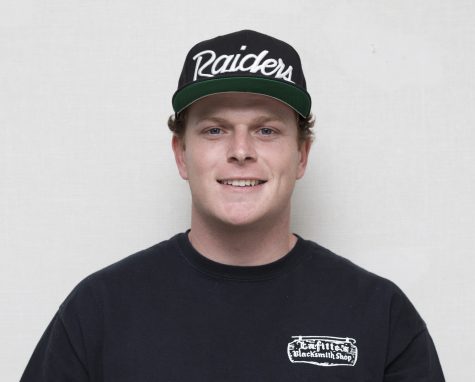Sooner or later there will come a time when you’ll need to interact with a police officer. The reason for this encounter, and its resulting outcome, will leave a distinct impression on you and possibly alter the tone of any future encounters.
In cadet training this fall, Santa Rosa Junior College’s District Police, president, instructors and cadets have again renewed their commitment to work together. The group plans to build a culture of respect and transparency by focusing on communication with the student body.
“Police officers and cadets have to be community oriented; they have to be able to talk to students,” said Santa Rosa District Police Chief Lorenzo Duenas. “It’s a dynamic characteristic that the officers must be available to the campus but also be stern enough to handle an active shooter at a moment’s notice.”
Police officers face a unique challenge: how to balance the two-way street of communication in a respectful manner.
These days, there’s a new layer to the dilemma — our ability to disseminate a video on a moment’s notice through social media. Videos of police encounters may portray a cloudy truth, or stark reality, which can expose an agency’s culture towards the practice of law enforcement.
“When we ask our customers, the chief and sheriffs, ‘What do you want us to produce?’ they say, ‘We don’t want robots; we want critical thinkers. We want analytical ability. We want people with communication skills,’” said SRJC cadet instructor Lanny Brown.
Part of Brown’s philosophy is to teach cadets the artful application of being a respectable police officer through a respect-based academy.
“In today’s climate, a cadet’s challenge is not their book smarts; the challenge is their attitude and how they relate to their customers,” Brown said.
The college has taken a new approach in their cadet instruction with less emphasis on military tactics and more emphasis on creating an officer who is an efficient communicator.
“We are here to educate people, not ‘Full Metal Jacket’ them,” Brown said, referring to academies moving away from paramilitary-based schools.
For SRJC students, that means there’s a commitment to and passion for the variety and needs of each individual student.
“This is a diverse community. It’s a large campus with a lot of students and our job is to protect this community,” Duenas said. “Each officer, from the very day that they sign up for the police academy, understands the word’s accountability, discipline, teamwork and ethical standards. This is tradition and history; it is engrained in them regardless of race, color and creed.”
The college is dedicated to maintaining an open and transparent relationship between the police department, the administration and students between both campuses.
“Not everything is equal. I encourage all the students to question how decisions are made,” said SRJC President Dr. Frank Chong. “I believe part of our job as college leaders is to empower you as the students to figure out solutions that will work for you. Not necessarily solutions I would like to impose on you.”




